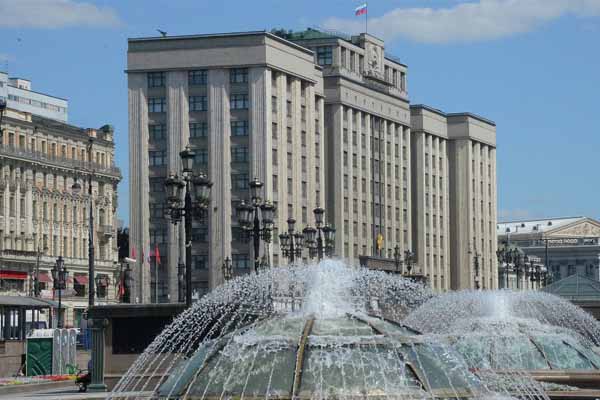Russia is drafting new bills to combat unlawful online gambling while simplifying laws which turned Russians to foreign online bookies in the first place.
The State Duma of Russia has officially greenlit a bill which would rid the country of its complicated double sports betting account verification process. This bill, which still has some stages to complete before becoming law, would radically change how Russian bettors set up their sports gambling accounts, as well as, simplify and remove barriers of registration for rural bettors. Russian Bill No. 423799-7 would amend various federal-level Russian gambling laws which regulate issues regarding online identification, advertising, and financials by simplifying and clarifying major concerns.
The bill was introduced by a group supervised by Deputy of the State Duma Andrei Lugovoy who also has associations with the Liberal Democratic Party of Russia. An official review of the proposed bill on September 11th by lawmakers has shown positive support for the bill’s intentions. Numerous individuals have anticipated reducing the number of verification steps sports bettors in Russia must take from first registering online, to registering through a centralized payment hub, to finally traveling to a physical bookie or payment processing partner within the country to verify identification documents before being able to place a single wager.
Russian sports betting companies with licenses issued by Russia would see immediate changes in regulation and potentially more bettors would register on these Russian sportsbooks. The Russian Federation would also see a significant increase in tax revenue since currently only 60% of wagers made by Russians are placed at Russian sportsbooks the remaining 40% usually go to foreign online bookies. However, if Russian sportsbooks allow simpler registration then the percentage of Russians wagering at Russian sportsbooks would increase.
Under this bill, TSUPIS, or centralized payment hubs, would still be required as they allow the government to carefully watch online transactions for any discrepancies. Currently, online sports betting is the only legal form of gambling allowed in Russia outside of four specially designated gambling zones; online casino gambling, online poker, and online lotteries are strictly prohibited and even blocked by the Federal Service for Supervision of Communication Information Technology and Mass Media, also known as Roskomnadzor. The Roskomnadzor blocked 14,500 authorized gambling sites in the month of August 2018 and during the first week of September have blocked 3,213 sites.
To combat illicit online gambling a new banking regulations law was passed in May of this year which would further prevent Russians from accessing offshore gambling sites. This law required banks to cut ties with any online gambling business or payment processor. Meaning banks were no longer allowed to process payments from Russian bank accounts to any unauthorized processors or gambling entities.
Recently, the Rosfinmonitoring Agency and Russia’s Federal Tax Service agreed to provisions which would allow them to further investigate the financial records of Russian-licensed bookmakers. This provision would prevent customers and businesses from laundering money or financing terrorist organizations through bookmaking operators and their services.
Last month, Russian President Vladimir Putin signed a law which would effectively punish any individual, group, or organization involved in illicit gambling operations or providing premises to do so. The law would fine individuals found guilty up to 500,000 rubles and 2 years imprisonment, groups or businesses would be fined 1,000,000 rubles and receive 4 years of imprisonment, and organized betting rackets conducting large-scale illegal gambling operations would pay a fine up to 1.5 million rubles and be sentenced to 6 years in prison.
Furthermore, Russia has produced bills which would force ISPs to remove or restrict access to illegal online casino gambling advertisements. This could greatly assist the Roskomnadzor by diverting ads to unauthorized gambling sites. With these bills, some lawmakers have called for the punishment of Russian celebrities who promote online casino brands through their music further influencing the youth of Russia toward illegal activities.
Russia is slowly attempting to correct issues and eyesores found within its federal gambling laws. The country wants to make serious changes and hopes to improve the lives of those bettors and the overall community through proper regulation and allocation of resources. Whether or not these new gambling laws could have a lasting effect is yet to be determined.

